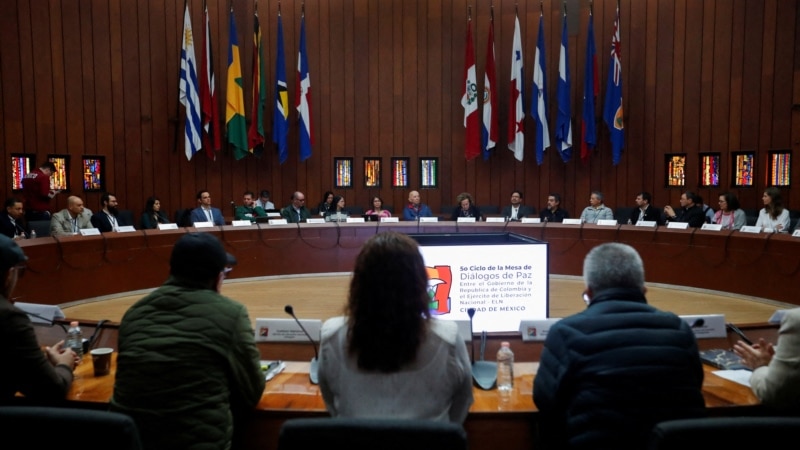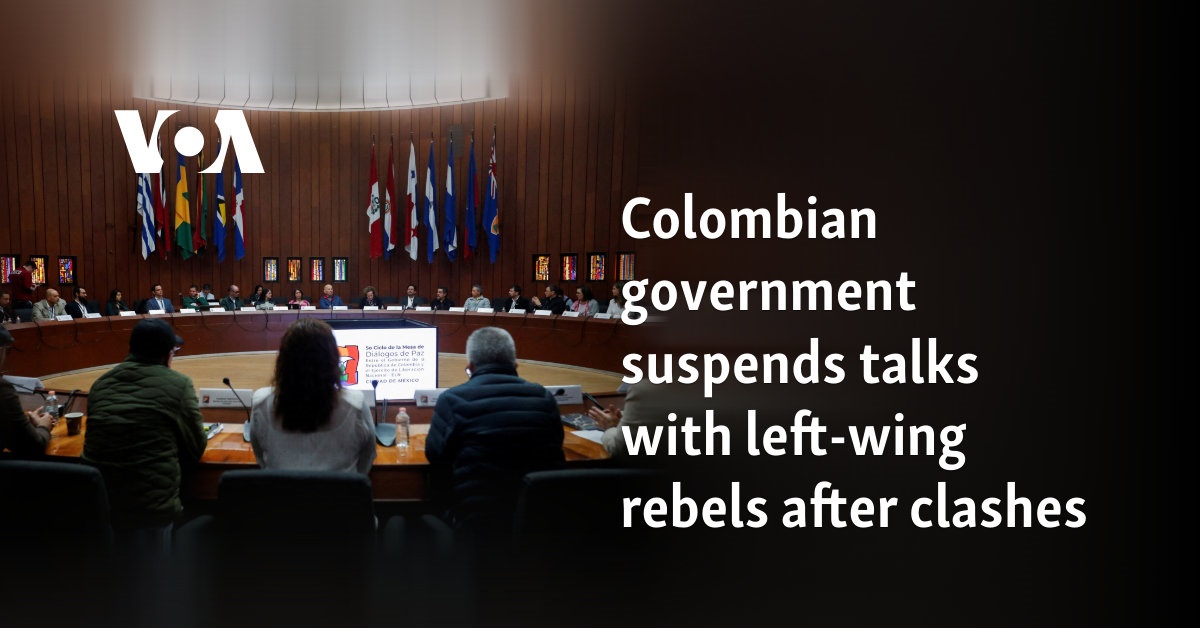
Colombia’s President Gustavo Petro said Friday he was suspending peace talks with National Liberation Army guerrillas after a day of violence between the groups in the northeast that left at least 30 people dead.
The violence took place in the Catatumbo region on the border with Venezuela, where rival groups have been fighting for years for control of the cocaine trade.
The latest fighting pitted rebels from the leftist National Liberation Army, or ELN — the largest of the armed groups still active in Colombia — against dissidents from the Marxist Revolutionary Armed Forces of Colombia, or FARC, which has signed a peace deal with the state. Signed. In 2016 after more than 50 years of war.
Petro accused the ELN of committing “war crimes” and said on a social network, “That’s why we are suspending negotiations with this group, because the ELN shows no desire to make peace.”
Petro, Colombia’s first leftist president, began talks with various armed groups that still control parts of Colombia after being elected in 2022 on a promise of “complete peace.”
Talks with the ELN broke down for months after the group launched a deadly attack on a military base last year.
William Villamizar, governor of the northern department of Granada, told Blue Radio that the latest clashes between the ELN and FARC dissidents occurred on Thursday.
He blamed the clashes on a “territorial dispute” linked to the cocaine trade, saying, “Data from the area indicates that at least 30 people were killed and more than 20 injured.”
Colombian ombudsman Iris Marín told Blue Radio that ELN members were attacking civilians, going “house to house” in the area around the city of Tibú in search of people they believed were dead. They belong to FARC dissidents.
He said initial reports indicated that “dozens” of families had been displaced and more than 20 people were missing.
On Thursday, the United Nations reported that five former FARC fighters had been killed.
The agreement with the FARC was intended to end the longest running war in the Americas, involving leftist guerrillas, right-wing paramilitaries, drug gangs and the military.
But holdout FARC splinter groups and the ELN refused to make peace.
In November the government and the ELN agreed in talks to restart the peace process in Venezuela, but the army and rebels have continued firing.
Experts said the cocaine trade is at the heart of the unrest.
Tibu, the scene of this week’s fighting, is located in one of the country’s largest areas for the production of coca – the main ingredient in cocaine, of which Colombia is the world’s leading producer.


